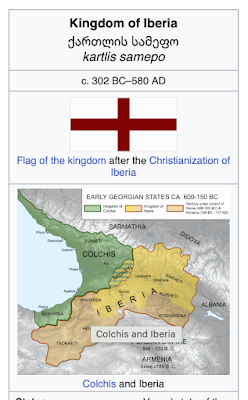Öylece!
Fazla kurcalamadan! Direk! Topun gelişine karşılaştırdım 4 alfabeyi. Finike Yunan Frig Türk İlk görsel 4 alfabenin birbirine duruşu |
| Pic2: for every Phrygian sign there is a similar Turkic rune |
Akkadian Sumerian Etruscan Turukku ProtoTurkic Proto Turkic Scythian Sarmatian Thracian PreGreek Pre-Greek Carian Sidetic Luwian Lycian Lydian Asianic Kurmali Karoshthi Indus Script Paulys RE Indo European IndoEuropean IndoGerman Etymology Kelime Köken Kelimeköken Turkish Türk Proto Altaic Uralic No Main Stream Ideas No MainsStream Something New No Racism Against EuroCentrism No Euro Centrism! I'm looking at the things through the Turkic window! * Türkic names in Pliny Strabon Homer Pauly RE
Öylece!
Fazla kurcalamadan! Direk! Topun gelişine karşılaştırdım 4 alfabeyi. Finike Yunan Frig Türk İlk görsel 4 alfabenin birbirine duruşu |
| Pic2: for every Phrygian sign there is a similar Turkic rune |
 |
| CRIMEA PENINSULA AND KARKINITSA BAY (*LEFT ABOVE*) |
 |
| Karakum (Black Sand) Desert ın Asia |
Biraz kuramsal düşünce!
 |
| Odysseus |
*
Baius is the helmsman of Odysseus.
Wenn i look the sentence above, I could recognize 2 Turkic words:
For Bai-us look at:
Proto-Turkic *bāj 1 rich, noble 2 many, numerous
It is a title like Oduz, meaning Old Turkic "general", as the head of soldiers and armies.
*
Source: Baius/Albius
*
§ 1.4.107 When he exhorted me to be thrifty and careful,
So as to live in content on what he’d leave me:
He’d say: ‘Don’t you see how badly young Albius
Is doing, how poor Baius is? A clear warning: don’t
Wilfully squander your birthright.’ Or steering me
*
Albius maybe the Turkic Alp (meaning great, hero)?
He is doing not well!
And Baius (meaning rich, noble) is not rich.
(as expected?)
Does Horace play here with "opposite" words?
*
Indices for the possible Turkic ID?
*
Uzunbacak Adem
 |
| Ancient Iberia / Georgia * |
There was a king named Artoces.
He was the king of Iberia.
Wiki: "Artoces was a king of Iberia (modern-day Georgia) from 78 to 63 BC."
*
Interesting name.
There is a Turkic commander/chieftain named Artuk.
Wiki: nown as Artuk Bey, was a Turkmen commander of the Seljuk Empire in the 11th century, chief of the Oghuz tribe of Döğer, and eponymous founder of the Artuqid dynasty.[2][3] His father's name was Eksük. He was the Seljuk governor of Jerusalembetween 1085–1091.
*
The names are very similar to each other.
Startling isn't it?
Old Turkic word ARTUK means rather, superior. There are many persons with this name in Turkish History and the most popular one is the Artuk Bey above.
*
Uzunbacak Adem
 |
| Teucer : Toykar : Τεῦκρος |
In Greek mythology, Teucer (/ˈtjuːsər/), also Teucrus, Teucros or Teucris (Ancient Greek: Τεῦκρος, romanized: Teûkros), was the son of King Telamon of Salamis Island and his second wife Hesione, daughter of King Laomedon of Troy. He fought alongside his half-brother, Ajax, in the Trojan War and is the legendary founder of the city of Salamis on Cyprus. Through his mother, Teucer was the nephew of King Priam of Troy and the cousin of Hector and Paris—all of whom he fought against in the Trojan War.
*
His name is interesting.
Teucer sounds like Turkic TOYGAR (metathesis of Turgay/Torgay) meaning a small bird, a bird of skylark family. It would be a usual male name in Turkish history and in modern Türkiye. Turgay is a very popular Turkish name nowadays.
*
The root of this bird we could follow till the Proto Altaic root:
There is a Greek deity whose name is Aidos, meaning shame, respect, modesty.
It has the same root with the Greek word αἰδώς (aidos) meaning shame.
A word/a name with an uncertain etymology. Beekes himself has no real proposal. See above the wiktionary etymology.
*
We have here a Proto-Altaic/Proto-Turkic words that can be the root:
Source:
Acc. to Wiktionary the English word "OTHER" has this etymology:
From Middle English other, from Old English ōþer (“other, second”), from Proto-West Germanic *ą̄þar, *anþar, from Proto-Germanic *anþeraz (“other, second”), from Proto-Indo-European *h₂énteros (“other”).
Cognate with Scots uther, ither (“other”), Old Frisian ōther, ("other"; > North Frisian üđer, ööder, ouder), Old Saxon ōthar (“other”), Old High German ander (“other”), Old Norse annarr, ǫðr-, aðr- (“other, second”), Gothic 𐌰𐌽𐌸𐌰𐍂 (anþar, “other”), Old Prussian anters, antars (“other, second”), Lithuanian antroks (“other”, pronoun), Latvianotrs, otrais (“second”), Macedonian втор (vtor, "second"),
Albanian ndërroj (“to change, switch, alternate”), Sanskrit अन्तर (ántara, “different”), Sanskrit अन्य (anyá, “other, different”).
*
Very interesting is the Turkic word "AD", meaning diversity, difference, gap.
Turkic verb adır- means to separate, to sort.
*
>Old Turkic adır (read it like odder "other " without th sound)
It means "other".
Look at the other variations of the word in many Turkic dialects:
*
Tantalizing, isn't it?
*
Uzunbacak Adem
Reconstruction based on a bull skeleton from Lund and a cow skeleton from Cambridge, pic: wiki * Robert Beekes wrote in his work "Pre...
